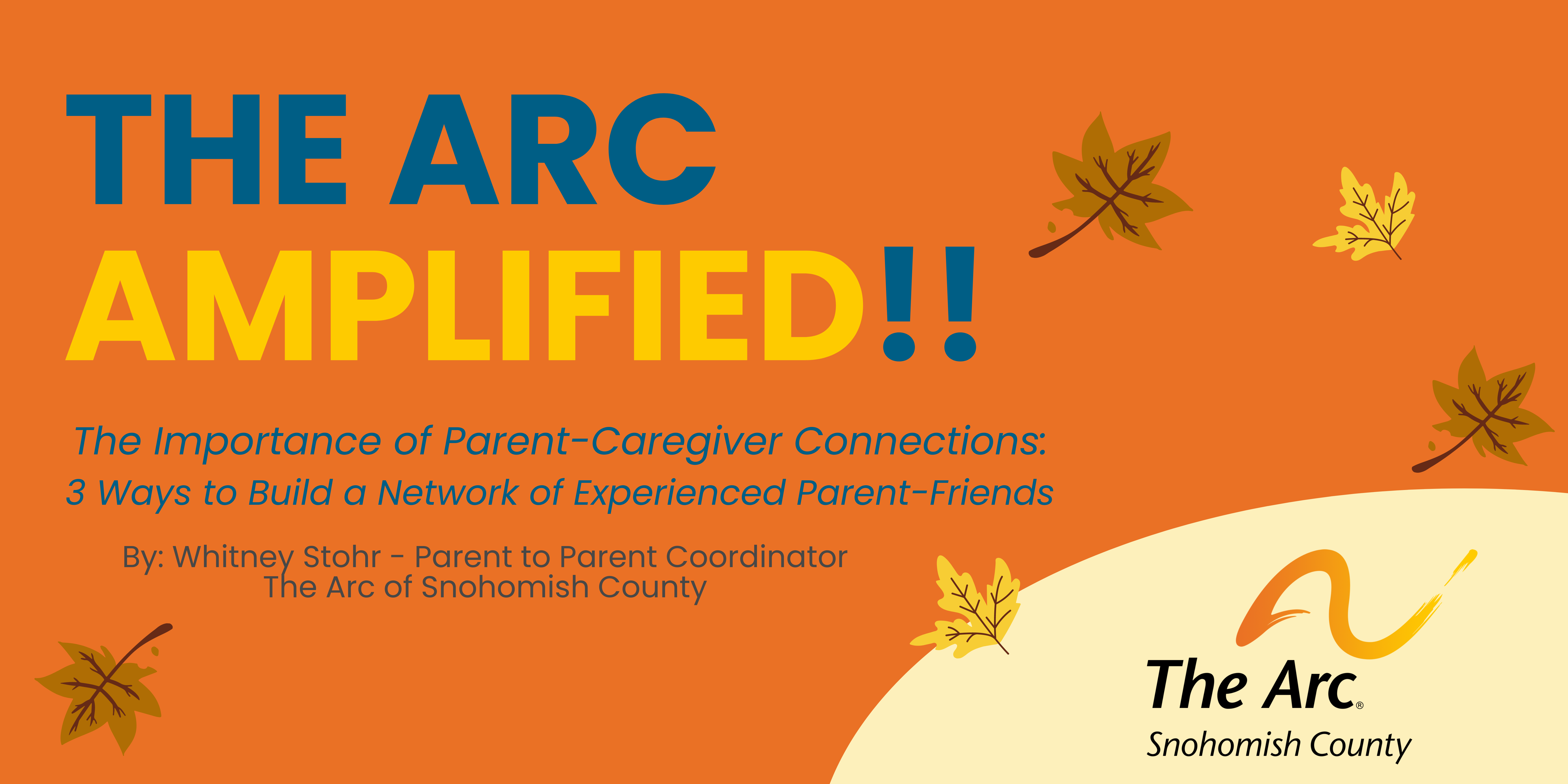
The Importance of Parent-Caregiver Connections:
3 Ways to Build a Network of Experienced Parent-Friends
Who do you turn to during times of high stress?
Who do you call when you need advice? Who is there to listen?
Who is there when your childcare falls through, or you need an overnight bag dropped off at the hospital?
Who will sit with you in the quiet after a particularly hard day of caregiving?
The value of these listening-ears, these hand-holders and these drop-everything-and-pick-your-kids-up-from-school-because-you-just-caught-a-ride-in-the-back-of-an-ambulence-with-your-toddler people cannot be overstated. These are your support people. This is the network of people we build up around ourselves. We rely on each other.
All parents can benefit from a well-established, supportive network of family, friends and/or community members. However, as parents of children with disabilities, we also need other medical families and caregivers in our lives.
We need people who understand our day-to-day routines because they, too, are living something similar. We need people who share the lived experience of caregiving and hospital stays, stress, anxiety, and feelings of isolation. We need people who have an informed perspective, who are available for the occasional rant, a good ugly cry, or to talk through new ideas for respite and care options. We need people who also spend hours navigating disability systems, sitting through IEP meetings and chauffeuring their kids back and forth to physical therapy and doctor’s appointments like other families do ballet and soccer practice.
We need those people in our lives. In addition to other family members, long-time friends, helpful colleagues, and loving members of our church and school communities, we need parent-caregiver friends.
But, how do you find these people?
Where do you connect with other family caregivers so that you can build these relationships?
1. Community Events & Activities
There are many different activities and community programs that support children with disabilities and their families. Seek out these opportunities to connect by searching for them online or asking around at your child’s school. There are Special Education-focused, parent-teacher groups in some school districts that create an easy opportunity to connect with other parent-caregivers. Other local nonprofit organizations host online events and meet-ups for diagnosis-specific communities. (Here is a list of local programs and services supporting individuals with disabilities and their families: tinyurl.com/yckyauak.)
2. Go Virtual
The power of technology means that individuals and small groups, once disconnected due to geographic distance, now have the ability to coalesce and build community online. There are countless parent pages and discussion groups on Facebook geared toward every type of disability. Searching via hashtags for other parent-caregivers on Instagram allows for more direct, personal connections. Twitter provides an ideal platform for quick conversations and information sharing. (Search for targeted conversations, such as those using #FamilyCaregiver or #DisabilityTwitter, to join the discussion) The podcast network has also expanded to include a number of terrific channels that focus specifically on caregiving issues and what it is like to raise a child with a disability. Guests on these podcasts will often share resources and ideas for how to connect with other parent-caregivers and medical families. (Check out the award-winning, Puget Sound-based podcast “Once Upon a Gene,” by parent-caregiver Effie Parks.)
Whatever the platform, the important thing is to engage! Share information, say “hello!” to other users, and comment on their posts. These platforms are all about building connections!
3. Caregiver Support Groups
The Arc of Snohomish County offers several parent-caregiver support groups that provide parents space to find support, share their hopes and fears and everyday challenges, and swap information about local resources. There are also groups for family caregivers of adults with disabilities and for sibling caregivers. (More information below!) Other organizations may offer diagnosis-specific groups, or groups based on some other shared experience such as language, ethnic background or religious/spiritual practice.
The Arc of Snohomish County — Caregiver Support Groups:
- Mother’s Network: For moms raising children with developmental disabilities. Meets monthly on the 1st Saturday, 10 am – 12 Noon.
- Father’s Network: For dads and male caregivers raising children with developmental disabilities. Meets twice monthly on the 2nd and 4th Thursdays, 7 – 9 pm.
- Padres Unidos: A Spanish-language support group for parents raising children with developmental disabilities. Meets on Fridays, 10 – 11 am
- Miercoles de Mamas Cocina y Manualidades: A Spanish-language support groups for moms raising children with developmental disabilities. Meets monthly on the 2nd Wednesday, 7 – 8 pm.
- Adult Caregiver Support Group: For the parents of adult children with developmental disabilities. Meets monthly on the 3rd Wednesday, 11 am – 12:30 pm.
- Washington State Adult Sibling Meetup: For siblings of adults with developmental disabilities. Meets monthly on the 3rd Thursday, 4 – 5 pm.
Visit our calendar of events for more information or to register to attend an upcoming support group meeting: arcsno.org/calendar.
**********
Whitney Stohr is a Parent to Parent Coordinator at The Arc of Snohomish County. She is passionate about advocating for medically complex children and children with disabilities and their families. She is a mom and medical caregiver herself, who is energized by working closely with other parent/family caregivers. She lives with her three-year-old son Malachi and husband Jason in Lynnwood. Connect with her online at whitney@arcsno.org.

